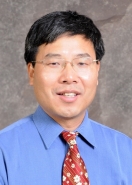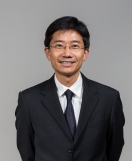2025 7th International Conference on Advanced Bioinformatics and Biomedical Engineering (ICABB 2025) aims to gather professors, researchers, scholars and industrial pioneers all over the world. ICABB is the premier forum for the presentation and exchange of past experiences and new advances and research results in the field of theoretical and industrial experience. The conference welcomes contributions which promote the exchange of ideas and rational discourse between educators and researchers all over the world. We aim to building an idea-trading platform for the purpose of encouraging researcher participating in this event. ICABB 2025 welcome qualified persons to delivery a speech in the related fields. If you are interested, please send a brief CV with photo to the conference email box: icabb@cbees.net.
Keynote Speakers

Prof. FangXiang Wu
University of Saskatchewan
Dr. FangXiang Wu is currently a full professor in the Departments of Computer Science, and the College of Engineering at the University of Saskatchewan. His research interests include Artificial Intelligence, Machine/Deep Learning, Computational Biology, Health Informatics, Medical Image Analytics, and Complex Network Analytics. Dr. Wu has published about 360 journal papers and more than 130 conference papers. His total google scholar citations are over 15300, h-index is 63. He is among top 2% world’s scientists ranked by Stanford University. Dr Wu is serving as the editorial board member of several international journals (including IEEE TCBB, Neurocomputing, etc.) and as the guest editor of numerous international journals, and as the program committee chair or member of many international conferences. He is an IEEE senior member and a recipient of many awards such as University of Saskatchewan Distinguished Research awards, IEEE BIBM Outstanding Service Awards, etc..

Prof. Wing-Kin Sung
The Chinese University of
Hongkong, and Hongkong Genome Institute
Professor Wing-Kin Sung is a Global STEM Professor in the Department of Chemical Pathology, the Chinese University of Hong Kong. He is the director of the JC STEM Lab of Computational Genomics. His recent research focuses on identifying genomic mutations from high-throughput sequencing data and on understanding the relationship between mutations (in particular, structural variations) and diseases. Prof. Sung received both the B.Sc. and the Ph.D. degree in the Department of Computer Science from the University of Hong Kong in 1993, 1998, respectively. He has over 25 years of experience in Algorithm and Bioinformatics research. Prior to joining CUHK, Professor Sung was a Professor in the Department of Computer Science at the National University of Singapore (NUS) and was a senior group leader at the Genome Institute of Singapore. He is an expert in the field of bioinformatics, who has been leading the development of a number of bioinformatics software and has over 290 high impact papers published in renowned academic journals, including Bioinformatics, Cell, Nature, Nature Genetics and Nucleic Acids Research. In recognition of his research contributions, Professor Sung was conferred the FIT Paper Award (Japan) in 2003, the National Science Award (Singapore) in 2006, and the Young Researcher Award (NUS) in 2008. He has also served in the programming committee for over 70 international conferences.
